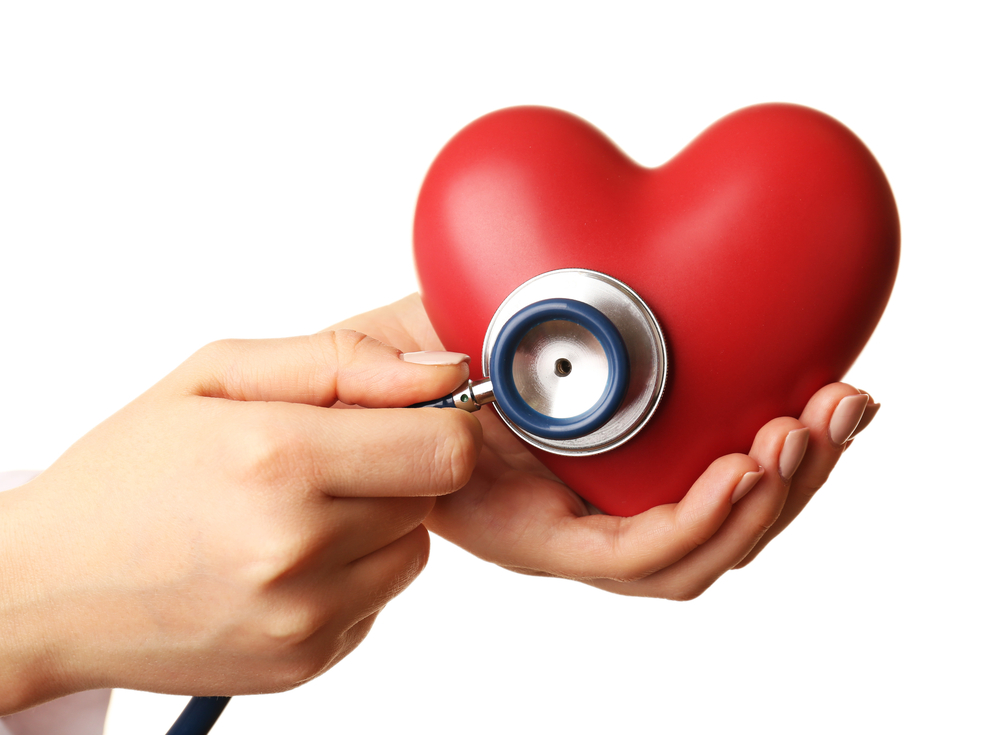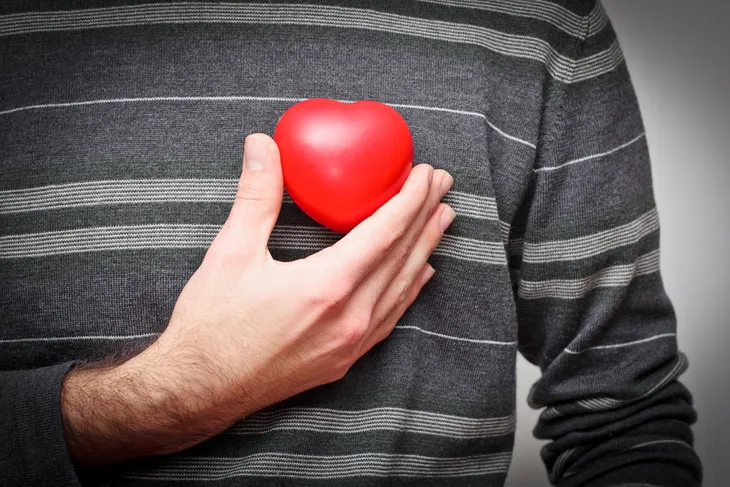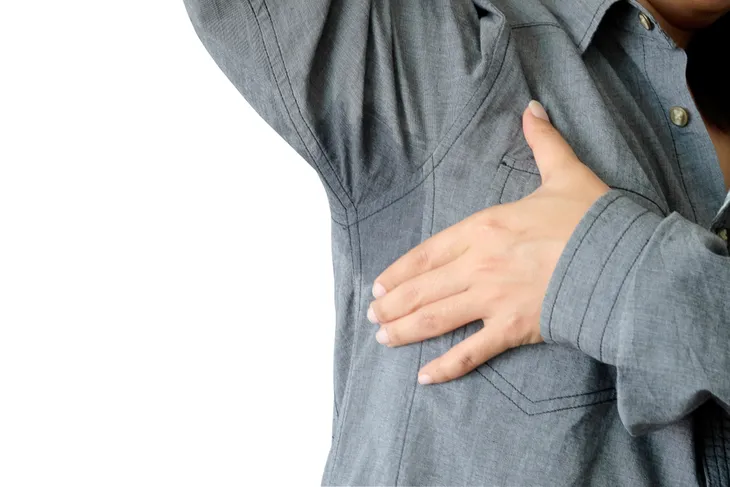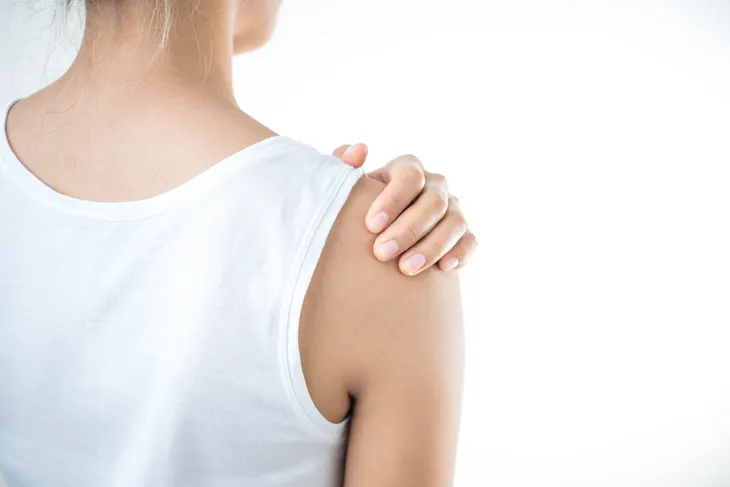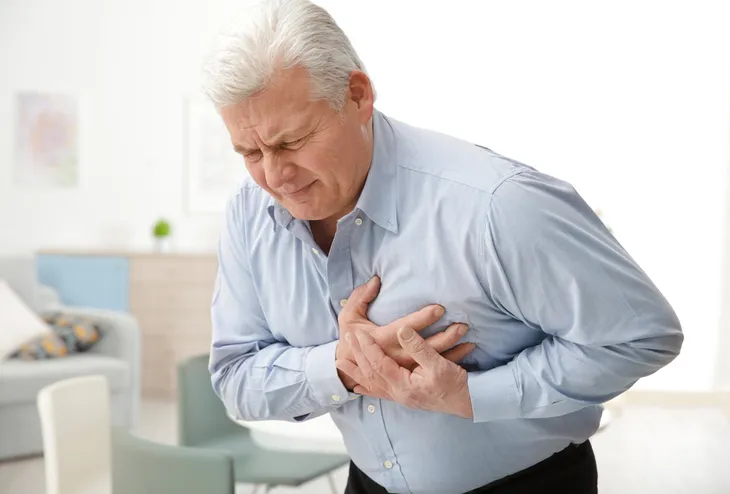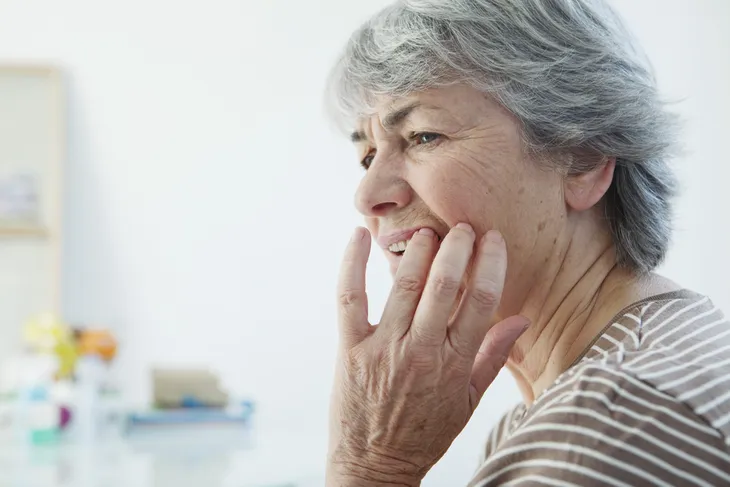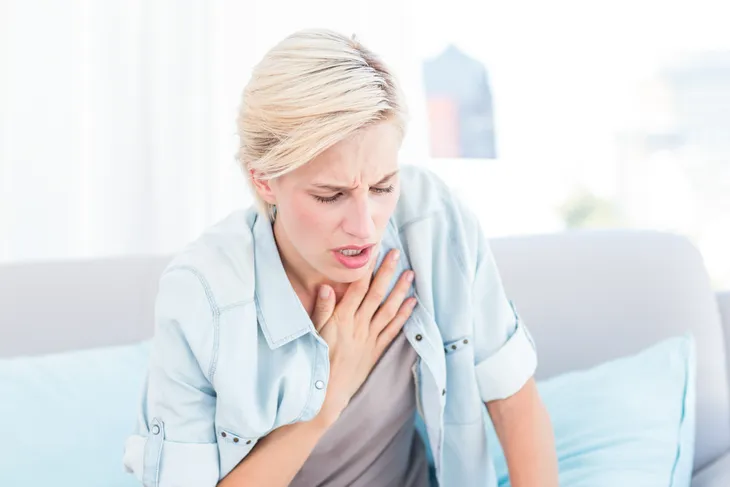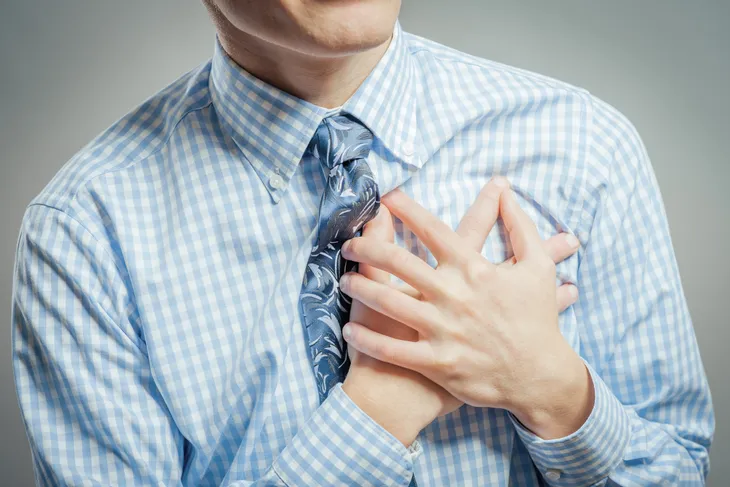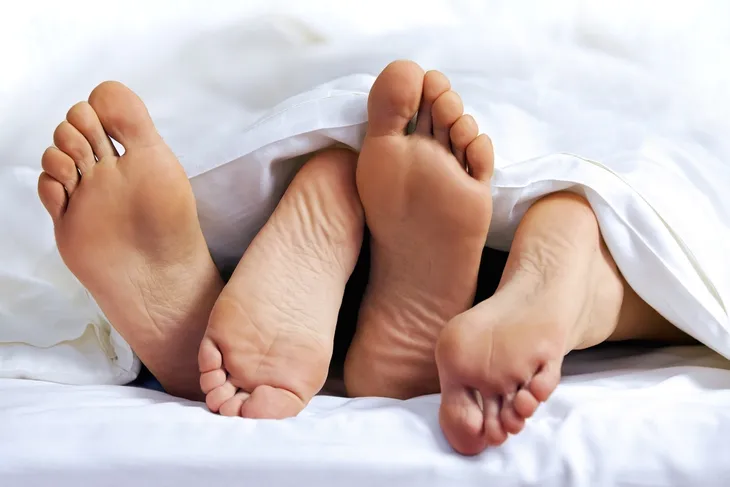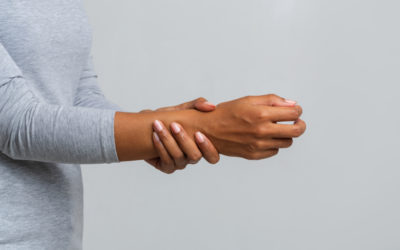You’d be hard pressed to find a more serious health problem than heart disease. One of the most visible signs of advanced heart disease is a heart attack something that can strike unexpectedly and with deadly force. This is one of the reasons why it’s important for people to recognize the early signs of heart disease, and better yet, the symptoms of a heart attack.
Most people associate heart attacks with the most classic and overly dramatic symptom of a heart attack someone clutching their chest before they fall to the ground. While chest pain is a very real symptom of heart attacks, there are many other symptoms. Many people probably don’t realize that these symptoms can present themselves differently depending on their gender! Quite simply, men and women should be on the lookout for unique warning signs if they suspect a heart attack. The following factors set men and women apart when it comes to a heart attack…
1. Age
The American Heart Association says that a man’s chance of suffering a heart attack increases dramatically once they reach their mid-forties. This means, men are far more likely to experience a heart attack at an early age compared to women. In contrast, women are unlikely to suffer a heart attack before their mid-sixties.
Clearly, men are more at risk when they hit mid-life. In fact, Harvard researchers have found that a 50-year-old American male has a 50-percent chance of developing heart disease at some point during the remainder of his life. Other factors that put someone at a higher risk are a family history of heart disease, lifestyle choices (i.e., smoking and drinking), high blood pressure, high blood cholesterol, and obesity.
2. Anxiety
This symptom is one of those hard-to-recognize signs that often goes unnoticed or is dusted off as something other than a heart attack. Anxiety is a heart attack symptom that is more commonly seen in women, and it’s not clear why. What is known is that many women make the mistake of dismissing a potential heart attack as an anxiety attack or just everyday stress. The results of this decision can be deadly.
New research has shown that women under the age of 55 are actually seven times more likely than men to be misdiagnosed in mid-heart attack. This means that women are often sent home by doctors who mistake the signs of a heart attack for an anxiety attack. If you’re a woman in your fifties or sixties and have a family history of heart disease, you should take anything that resembles a heart or anxiety attack very seriously and insist that your doctor carry out proper testing of your condition before being sent home.
3. Dizziness
In both men and women, dizziness is an early warning sign that a heart attack may be under way, but WebMD notes it’s more likely to occur in women. The problem is caused when the heart stops beating properly (meaning it beats too fast or too slow), limiting the amount of blood reaching the brain. Heartbeat and blood flow to the brain can often be affected by the blockage of blood flow, usually by a condition associated with heart disease.
The result can be dizziness or even sudden loss of consciousness. If you’re a man or a woman, and have a history of heart disease (or a family history of heart disease), contact your doctor immediately if you begin to feel lightheaded or dizzy.
4. Cold Sweats
Sudden, unexpected, and unexplained sweating—particularly a cold sweat—can be a sign that you are experiencing a heart attack. The problem affects both men and women, but it is more prevalent in men.
The good news is that excessive sweating can help one identify that a heart attack is underway, giving them the chance to call for help. In fact, research has shown that sudden sweating is a more prevalent warning sign of heart attack than chest pain. Strangely, researchers are still not sure why heart attack causes sudden and unexpected sweating.
Improve your heart health in just five days! Sign up for our newsletter to receive our daily heart health checklist.
5. Upper Back Pain
Another unique and lesser known symptom of a heart attack is upper back pain. While men are more likely to experience chest pain and pressure that feels like the weight of an elephant is sitting on their chest, women will feel pain in other areas of their body, such as their upper body, neck, back, and jaw. These can contribute to a misdiagnosis or delay in getting help, because women will often attribute their pain to the flu, as it feels like they are simply suffering from some ill-related body aches. But like the others on this list, it should be taken very seriously. WebMD lists it as “discomfort or pain between the shoulder blades.”
6. Chest Pain
Chest pain is easily the most widely recognized sign that a heart attack may be under way. Many people associate a heart attack with this particular symptom mainly, because it’s what is most often depicted on screen. In fact, it’s often referred to as a “Hollywood heart attack.” Both men and women have been known to experience chest pain, but it’s actually more prevalent in men.
In women, there are other early warning signs to consider, including shortness of breath, nausea and vomiting, and even back or jaw pain. Of course, anyone with a history of heart disease—man or woman—should call 9-1-1 immediately if they experience sudden and serious chest pain.
7. Jaw Pain
Although it is rare, there are some women who have suffered a heart attack and pointed to jaw pain as an early warning sign. The condition, which is far more prevalent in women than men, can come on gradually or suddenly. It typically occurs because when there’s a problem with the heart, it affects the nerves in that generalized area, which is why someone might feel pain in only certain areas of their body. Since the jaw is seemingly unrelated to the chest or heart, many people do not recognize this symptom as a one that indicates they are suffering a heart attack. Women, in particular those with a history of heart disease, must take this symptom seriously.
So, how can you know if your jaw pain is a sign of a heart attack? Experts from WebMD say it’s hard to miss because it can be painful enough to wake you from sleep or keep you from carrying out normal activities during the day.
8. Indigestion and Stomach Pain
Because indigestion and stomach pain is so common in American adults, it can be easy to dismiss either condition in the event of a heart attack. But someone with a history of heart disease should take the sudden and unexplained emergence of indigestion and stomach pain very seriously.
Both men and women can experience indigestion and stomach pain during the early stages of a heart attack. The trick is to look for other symptoms, including chest pain and dizziness in men and jaw pain or upper back pain in women.
9. Fatigue
Many women who have experienced serious heart attacks have reported feeling extremely tired as the condition advanced. The key is to take note of recent activity. For instance, if you’ve been active, it may be possible that sudden fatigue is completely normal.
However, if you’ve been sitting for a while and haven’t moved much, emerging fatigue can be a sign of a heart attack. So, if you’re so unexpectedly tired that you can barely walk around the house, consider calling a doctor.
10. Shortness of Breath
Many men and women who have suffered a heart attack remember feeling severe shortness of breath just before the condition became obvious. It can come on very suddenly and even occur without any chest pain or at the same time. This symptom is hard to ignore because it can leave one feeling unable to breathe deeply or effectively, even when all you’re doing is resting. Healthline describes it as “shortness of breath, which may leave you feeling like you can’t get enough air, even when you’re resting.”
Often, shortness of breath accompanies severe chest pain, but as we said previously, it can also occur before. If either of these conditions—or other symptoms such as dizziness, jaw pain, or excessive sweating—emerges suddenly and unexpectedly, seek help immediately.
11. Chest Pressure
This symptom is similar to chest pain, but instead of feeling just a sharp pain, it’s often described as feeling like an invisible person or an elephant is sitting on your chest. WebMD writes, “Standard chest pressure that feels like ‘an elephant’ is sitting on your chest, with a squeezing sensation that may come and go or remain constant and intense.”
Similar to chest pain, chest pressure is more prevalent in men. “Women can experience a heart attack without chest pressure, ” notes Dr. Nieca Goldberg, medical director for the Joan H. Tisch Center for Women’s Health at New York University’s Langone Medical Center. “Instead, they may experience shortness of breath, pressure or pain in the lower chest or upper abdomen, dizziness, lightheadedness or fainting, upper back pressure or extreme fatigue.”
12. Trouble in the Bedroom
For obvious reasons, erectile dysfunction is a heart attack symptom that only men experience. If a man is having trouble getting or maintaining an erection, it is most often because “your blood vessels down there are damaged, there’s a good chance the ones near your heart could be damaged as well,” says Men’s Health.
But please don’t go freaking out that you’re having a heart attack if it happens one time! If it is an isolated occurrence, there are many other reasons it could be happening. It could be attributed to being overly stressed or tired. However, if this is something that is happening on a regular basis, there might be reason to go see a doctor to start pinning down some of the possible causes.
13. Headache
We all get headaches from time to time. So, usually they aren’t anything to be too alarmed about, but they can be a common sign of heart attacks in women. AgingCare weighs in on the topic and says that a woman who’s suffering from a heart attack will experience a headache that is more like a migraine.
“Women in particular who experience migraine with aura (a migraine accompanied by sensory symptoms, like flashes of light, blind spots or tingling in your hand or face) can have double the risk of heart attacks,” writes AgingCare.com. If you’re a woman who’s experiencing this symptom, along with any others on this list, then be sure to book an appointment with your doctor right away.
